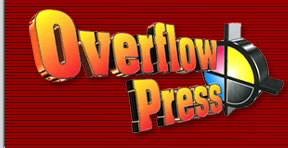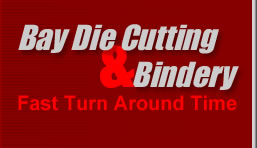 |
Half Fold
The half fold is commonly used for brochures
and greeting cards. For cover weight paper,
a score is usually required to produce a
smooth folded edge.
|
 |
Two Parallel Fold
An excellent fold for legal size (or larger)
pieces that are to be mailed. A legal sheet
(8.5" x 14") is folded to 3.5" x 8.5". A 9"
x 16" sheet produces a 4" x 9", four panel
brochure. Note: A perforation added at one
of the folds can create a three panel
brochure with detachable reply card.
|
 |
Letter Fold
This common fold, used for mailings and
brochures, is much like a letter folded by
hand for inserting in an envelope. The
letter fold produces a self-contained unit,
easily handled by automated envelope
inserters.
|
 |
Accordion Fold
This is the four or five panel equivalent of
the “Z” fold. It makes a nice presentation,
but may want to spring open. It can be
temperamental to set up and usually requires
each panel be about 1/32" longer than the
preceding panel. It is run tail first so
that the front cover will be the widest
panel.
|
 |
Z-Fold
The “Z” style offers an advantage for
multi-page letters to be collated and hand
inserted for mailing. Because the pages nest
together, the letter is opened with the
pages in sequence. It does tend to spring
open and should be avoided when automated
envelope inserting is used.
|
 |
Half + Z Fold
When used for a newsletter, this fold has
the advantage of positioning the masthead on
top of the front and the mailing panel right
side up on the back. New mailing
requirements, however, would require both
edges to be tabbed.
|
 |
Half + Letter Fold
This fold is perfect for newsletters. An 11"
x 17" sheet folded this way has only one
open side and fits into a #10 envelope. The
newsletter looks good and is easy to handle.
|
 |
Gate Fold
The gate fold is very attractive as the
succession of message presentation is
dramatic. It requires either handwork or
specialized equipment. Lining up images that
cross over the inside flaps can be very
difficult.
|
 |
Barrel Fold
Popular, although sometimes tricky, the
barrel fold “rolls up” a multi-panel
brochure. Each panel must be slightly longer
than the preceding one. It may or may not be
a good design for a given brochure as the
message tends to unroll rather than open up
to the reader.
|
 |
Eight Page Right Angle Fold
This is a typical fold for booklet binding.
Pages are printed four per side of the
sheet, with the correct imposition, and are
folded to eight page units for collating.
Generally, these signatures will be saddle
stitched to produce multi-page booklets. |
 |
Z-Fold with Angled Trim
An angled trim on an 8.5" x 11" sheet
produces an interesting presentation. Trim
two of the panels at an angle and then
Z-fold. The resulting brochure or invitation
unfolds like this: |
  |
Sixteen and Thirty-Two Page Right Angle
Fold
For progressively larger books and larger
press sizes, additional folding units are
added to provide more pages per signature. |
|
|


